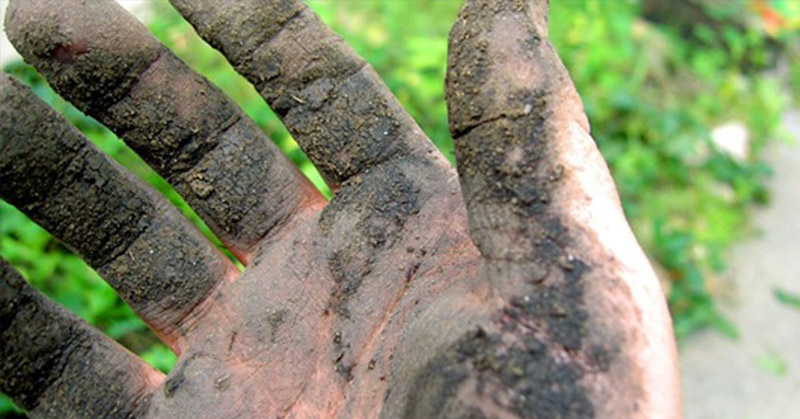Gardening enthusiasts often talk about the stress-reducing and mood-improving benefits of tending to plants. But can gardening, with its fresh air and exposure to Vitamin D, actually help those suffering from depression? According to experts, the answer is a resounding “yes.”
The key lies in the antidepressant microorganisms found in soil.
Antidepressant Microbes in the Soil
Mycobacterium vaccae (M. vaccae) in soil have been found to naturally activate the release of serotonin and dopamine in the brain. These neurotransmitters play a vital role in regulating mood and emotions, providing a sense of pleasure and well-being.
When we garden, these beneficial microorganisms are absorbed through the skin and inhaled, entering our bloodstream and respiratory system. This leads to a quick boost in mood and reduction in pain.
The connection between these soil microbes and mood elevation was discovered accidentally, initially as an immune booster for lung cancer patients. The results exceeded expectations, with patients experiencing improved immune function along with increased happiness and pain relief.
Study: Soil Organisms and Behavioral Effects
A study by neuroscientists Dorothy Matthews and Susan Jenks found that exposure to soil organisms like M. vaccae may help in the development of the immune and nervous systems. In experiments with mice, those treated with M. vaccae showed reduced anxiety and improved cognitive function compared to control groups.
This research suggests that being in contact with these soil microbes could have impacts on human development, potentially reducing anxiety and enhancing learning.
Professor Graham Rook of University College London emphasizes the importance of microbial exposure for overall health, linking deficiencies in exposure to chronic health issues, including depression.
The connection between the gut and the brain reveals how gardening can positively impact mental health.
Get Dirty: Gardening for Mental Health
Gardening has long been known for its benefits, and now we understand the science behind it. The act of gardening not only provides a fulfilling activity but also releases happy neurotransmitters.
From the brain-boosting effects of soil to the grounding nature of being outdoors, tending to a garden is a valuable investment in mental wellbeing.
So what are you waiting for? Start gardening, get outside, connect with nature, and reap the benefits of getting your hands dirty.
Editor’s Note: This article was originally published on August 8th, 2016, and has since been updated.
Read More: You’re missing these warning signs that someone you love has depression






